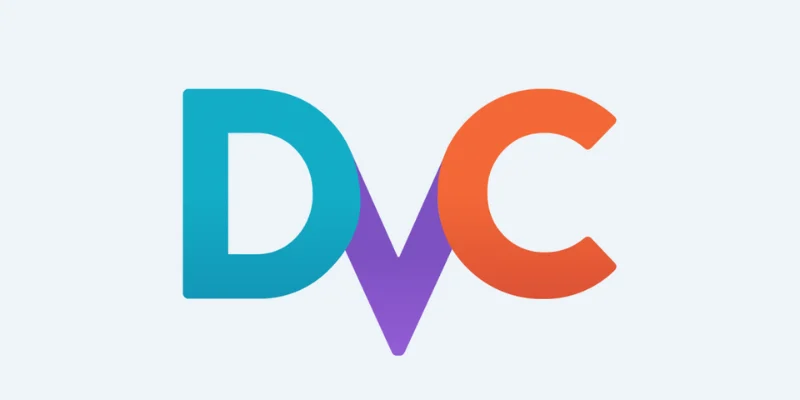Data Version Control (DVC) for Machine Learning Projects
As machine learning projects become more complex, managing datasets, models, and experiments can become a major challenge. Unlike software development, where version control is relatively straightforward, machine learning workflows often involve large data files, evolving models, and multiple iterations. This is where Data Version Control (DVC) comes in, a powerful tool designed to bring versioning, reproducibility, and collaboration into the world of data science. If you’re looking to dive deeper into data science concepts, a Data Science Course in Trivandrum at FITA Academy can guide you with the knowledge and practical skills needed to excel in this field.
What is DVC?
DVC stands for Data Version Control, an open-source tool created specifically to manage machine learning workflows. It works alongside Git, allowing data scientists to track changes in data files, machine learning models, and experiment configurations.
While Git is excellent for code, it struggles with large files and binary data. DVC fills this gap by keeping large datasets and models outside the Git repository while still enabling version control and team collaboration.
Why Version Control Matters in Machine Learning
In data science, reproducibility is a constant concern. Every change in your data, preprocessing steps, feature engineering techniques, or model parameters can impact results. Without a clear history of what was changed and when, it becomes nearly impossible to reproduce previous outcomes or understand performance shifts. To enhance your skills and gain a more profound understanding of reproducibility in machine learning, signing up for a Data Science Course in Kochi can help you develop a solid foundation in managing these challenges.
Using DVC helps solve this problem by tracking the entire machine learning pipeline. You can effortlessly revert to an earlier state, compare different experiments, or collaborate with teammates without confusion over file versions or dependencies.
Key Features of DVC for Data Scientists
DVC brings several essential features to the table for data science workflows:
1. Data and Model Versioning
DVC allows you to version datasets and models in a way that integrates smoothly with Git. Each dataset or model version can be tied to a specific commit, ensuring consistency between the code and the data used.
2. Reproducible Pipelines
With DVC, you can define pipelines that capture every step in your machine learning process, from data preprocessing to model training and evaluation. This ensures that your project is reproducible, even months later or across different machines.
3. Storage Flexibility
DVC allows you to keep your data and models in several different remote locations, such as cloud storage solutions like AWS S3, Google Drive, Azure, and more. This keeps your Git repository lightweight while enabling easy access to large files. To master these tools and techniques, you can join a Data Science Course in Pune, where you’ll gain practical experience and expertise in handling complex data workflows.
4. Collaboration and Teamwork
In team settings, DVC ensures that everyone is working with the same version of data and models. There’s no need to manually share files or worry about overwriting someone else’s work. This makes collaboration in data science projects much smoother.
How DVC Fits into the Data Science Workflow
A typical machine learning workflow involves multiple stages: data collection, cleaning, feature engineering, training, evaluation, and deployment. DVC helps data scientists track each of these components. For instance, when experimenting with new preprocessing techniques, you can version your data transformation scripts along with the datasets and models they generate.
As you iterate, DVC logs each change and ties it to your Git commits. If a newer model performs worse than a previous one, you can easily revert and analyze the differences. This transparency reduces guesswork and boosts confidence in your experimentation process.
DVC vs Traditional Version Control Tools
Many data scientists start by using Git to track code and Google Drive or Dropbox for storing data. While this works for small projects, it quickly becomes messy and unmanageable as projects grow. DVC was designed to handle data-centric workflows, giving it a clear advantage over traditional version control tools when dealing with large files and model outputs.
Data Version Control (DVC) is a game-changer for machine learning practitioners. It brings the structure and discipline of software engineering into data science, where complexity and experimentation are the norms. By versioning your data, tracking experiments, and creating reproducible pipelines, DVC empowers data scientists to build more reliable, scalable, and collaborative projects.
Whether you’re working solo or as part of a larger team, DVC can streamline your workflow, eliminate confusion, and help you take control of your machine learning lifecycle. For any serious data science project, adopting DVC is a step toward more professional, efficient, and organized development. To gain a comprehensive understanding of tools like DVC and build your skills in managing complex data workflows, consider enrolling in a Data Science Course in Jaipur, where you can learn from industry experts and work on real-world projects.
Also check: Explaining Linear Regression in Data Science





Leave a Reply
Want to join the discussion?Feel free to contribute!